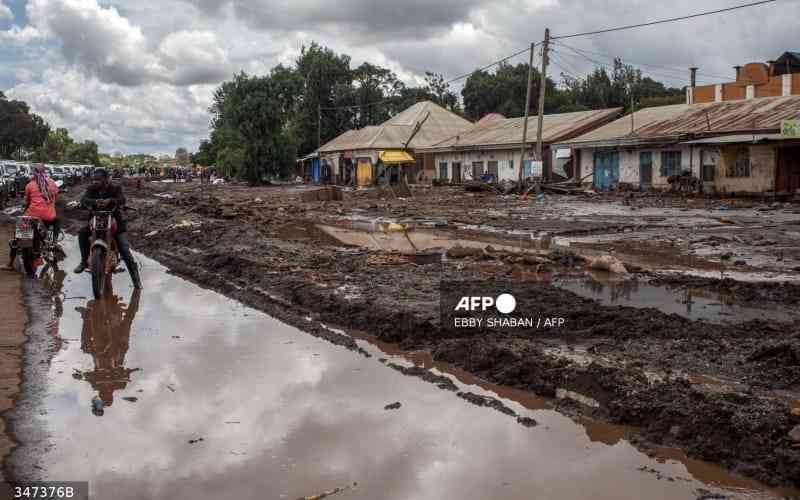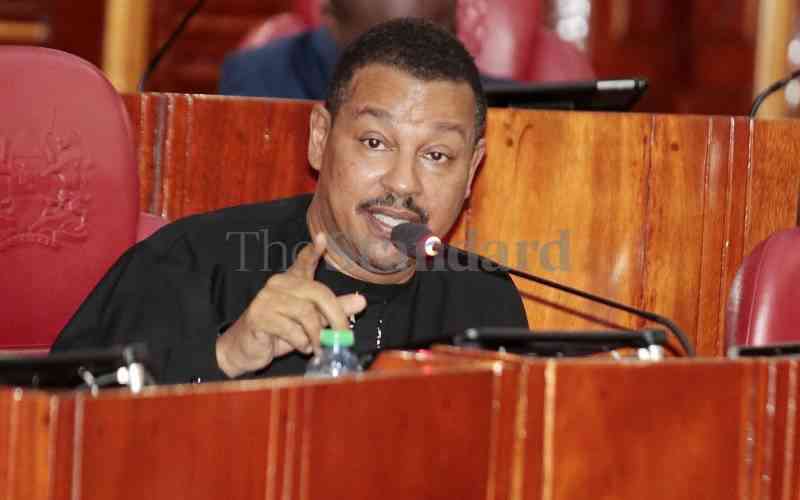Kenya: Okoa Kenya’s referendum drive appears to be losing steam after a series of poorly-attended rallies last week. And chances of a potential merger with similar drive launched by governors is also appearing non-viable after three governors lobbying for a national plebiscite withdrew their support. This means that there is only one governor of the the 47 elected county leaders pushing for a people’s petition to amend the Constitution.
The Okoa Kenya initiative, largely driven by the Raila Odinga-led Coalition for Reforms and Democracy (CORD), is a people’s petition to amend the Constitution by bypassing the National Assembly to circumvent Jubilee’s majority in the House. Its proponents are required by law to collect one million signatures of registered voters and gain the support of 24 county assemblies.
The Okoa Kenya brigade has failed to win the support of key allies and institutions, while some key members within CORD have voiced their opposition to the referendum.
Last month, CORD co-principal Moses Wetang’ula aptly captured the mood when he confessed to CORD members at a meeting at Bomas of Kenya that they must re-engineer support for a plebiscite. “We have lost momentum and we need to go back to pre-Saba Saba days,” Wetang’ula said.
However, Raila told The Standard on Sunday in an interview that the referendum was a gradual process and momentum would be gained over time.
After the Bomas meeting, Raila headed to the Coast region but efforts to win back key allies did not achieve much. The ODM leader and Wetang’ula held rallies in Tana-River, Kwale and Kilifi counties but these were poorly attended. It was at Kinango in Kwale where Raila and Kwale governor Salim Mvurya were whipped by an onlooker in a dangerous security lapse.
Parallel rallies
Even as the CORD leaders were campaigning in Kilifi, CORD rebels led by Kilifi North MP Gideon Mungaro held parallel rallies to discredit calls for the plebiscite while Lunga Lunga MP Khatib Mwashetani stormed out of one of the rallies addressed by Wetang’ula.
The question of internal rebellion is putting CORD on edge. While Raila has stated that rebels would not to be punished, Deputy Chief Whip Chris Wamalwa indicated that they were to be dropped from the parliamentary committees they serve.
“The CORD leaders have given a go-ahead to us to de-whip rebel MPs in the National Assembly. For senators and governors, that will be addressed at a higher level. I can only speak on where I belong,” Wamalwa said.
The impact of internal rebellion aside, CORD appears to have lost out on the country’s historical traditional allies of the pro-democracy movement. The Law Society of Kenya has remained mum on the matter while civil society has kept aloof.
By contrast, the Anglican Church of Kenya, Catholic Church and the umbrella National Council of Churches of Kenya (NCCK) have expressly spoken out against the referendum.
ACK Archbishop Eliud Wabukala opposed the referendum calls, describing a plebiscite as a waste of time and resources. “Calling for the plebiscite will only derail development because it will put the country in an election mood. The Opposition should analyse their stand and decide if it will benefit Kenyans or if it is only for the benefit of individuals,” said Wabukala.
It’s the same position also taken by the Federation of Kenya Employers and the Central Organisation of Trade Unions. The Commission on Implementation of Constitution has equally opposed the referendum.
Stay informed. Subscribe to our newsletter
“It’s over. Kenya’s political life is changing. Let us not also forget the negative impact of politics on the economy. If you check at the patterns, you will notice that there is never any growth in election or referendum years,” Prof Karuti Kanyinga of University of Nairobi said.
Prof Yash Pal Ghai, another key ally in the struggle for change, has also opposed the drive. Ghai told The Standard on Sunday that “constitution’s should not be altered unless there is clear necessity.”
“Otherwise the idea of a lasting constitution gets delegitimised—often for partisan reasons. New constitutions, especially radical ones, need time for “maturation”. You don’t rush to change unless there is a very clear and exceptional need. Do we have a clear and exception need really?” he posed.
Ghai is also wary of referendum push being hijacked by “partisan motives.”
 The Standard Group Plc is a
multi-media organization with investments in media platforms spanning newspaper
print operations, television, radio broadcasting, digital and online services. The
Standard Group is recognized as a leading multi-media house in Kenya with a key
influence in matters of national and international interest.
The Standard Group Plc is a
multi-media organization with investments in media platforms spanning newspaper
print operations, television, radio broadcasting, digital and online services. The
Standard Group is recognized as a leading multi-media house in Kenya with a key
influence in matters of national and international interest.
 The Standard Group Plc is a
multi-media organization with investments in media platforms spanning newspaper
print operations, television, radio broadcasting, digital and online services. The
Standard Group is recognized as a leading multi-media house in Kenya with a key
influence in matters of national and international interest.
The Standard Group Plc is a
multi-media organization with investments in media platforms spanning newspaper
print operations, television, radio broadcasting, digital and online services. The
Standard Group is recognized as a leading multi-media house in Kenya with a key
influence in matters of national and international interest.







